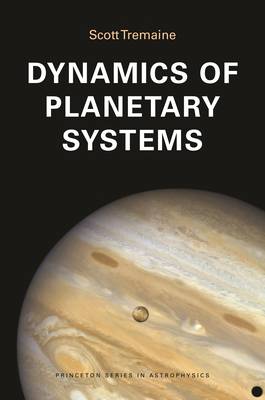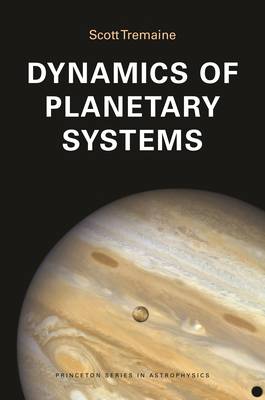
- Retrait gratuit dans votre magasin Club
- 7.000.000 titres dans notre catalogue
- Payer en toute sécurité
- Toujours un magasin près de chez vous
- Retrait gratuit dans votre magasin Club
- 7.000.0000 titres dans notre catalogue
- Payer en toute sécurité
- Toujours un magasin près de chez vous
241,95 €
+ 483 points
Format
Description
An introduction to celestial mechanics for advanced undergraduates, graduate students, and researchers new to the field
Celestial mechanics--the study of the movement of planets, satellites, and smaller bodies such as comets--is one of the oldest subjects in the physical sciences. Since the mid-twentieth century, the field has experienced a renaissance due to advances in space flight, digital computing, numerical mathematics, nonlinear dynamics, and chaos theory, and the discovery of exoplanets. This modern, authoritative introduction to planetary system dynamics reflects these recent developments and discoveries and is suitable for advanced undergraduate and graduate students as well as researchers. The book treats both traditional subjects, such as the two-body and three-body problems, lunar theory, and Hamiltonian perturbation theory, as well as a diverse range of other topics, including chaos in the solar system, comet dynamics, extrasolar planets, planetesimal dynamics, resonances, tidal friction and disruption, and more. The book provides readers with all the core concepts, tools, and methods needed to conduct research in the subject.- Provides an authoritative introduction that reflects recent advances in the field
- Topics treated include Andoyer variables, co-orbital satellites and quasi-satellites, Hill's problem, the Milankovich equations, Colombo's top and Cassini states, the Yarkovsky and YORP effects, orbit determination for extrasolar planets, and more
- More than 100 end-of-book problems elaborate on concepts not fully covered in the main text
- Appendixes summarize the necessary background material
- Suitable for advanced undergraduates and graduate students; some knowledge of Hamiltonian mechanics and methods of mathematical physics (vectors, matrices, special functions, etc.) required
- Solutions manual available on request for instructors who adopt the book for a course
Spécifications
Parties prenantes
- Auteur(s) :
- Editeur:
Contenu
- Nombre de pages :
- 640
- Langue:
- Anglais
- Collection :
- Tome:
- n° 63
Caractéristiques
- EAN:
- 9780691207124
- Date de parution :
- 07-02-23
- Format:
- Livre relié
- Format numérique:
- Genaaid
- Dimensions :
- 157 mm x 239 mm
- Poids :
- 820 g

Les avis
Nous publions uniquement les avis qui respectent les conditions requises. Consultez nos conditions pour les avis.






